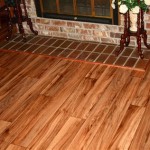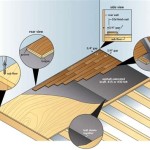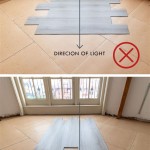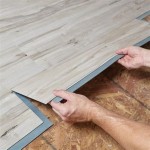Understanding Your Hardwood Flooring Estimate: A Comprehensive Guide
Embarking on a hardwood flooring project is a significant investment that can dramatically enhance the aesthetic appeal and value of a property. A crucial step in this process is obtaining a detailed and accurate estimate from a reputable flooring contractor. This document serves as a roadmap, outlining the scope of work, materials, and associated costs. Understanding the components of a hardwood flooring estimate is paramount to ensuring a smooth, transparent, and financially responsible installation process.
A well-prepared estimate should encompass more than just the cost of the hardwood itself. It needs to account for various factors, including site preparation, labor, materials, potential challenges, and any additional services required to achieve the desired outcome. A thorough understanding of each element within the estimate empowers property owners to make informed decisions, compare bids effectively, and avoid unexpected expenses down the line.
This article will delve into the intricacies of a hardwood flooring estimate, providing a comprehensive overview of the key elements to look for and the questions to ask potential contractors. By understanding these details, homeowners can navigate the estimation process with confidence and ensure that their hardwood flooring project is executed successfully and within budget.
Key Components of a Hardwood Flooring Estimate
A comprehensive hardwood flooring estimate should break down the project into distinct categories, providing a clear and transparent view of the costs involved. These categories typically include the cost of materials, labor, site preparation, and any additional services or potential charges.
Material Costs: This section outlines the cost of the hardwood flooring itself. The price will vary significantly depending on the type of wood (e.g., oak, maple, hickory, Brazilian cherry), the grade (e.g., select, common), the width and thickness of the planks, and whether it is solid hardwood or engineered hardwood. The estimate should specify the exact type and quantity of flooring being proposed, including a breakdown of the price per square foot. Additionally, this section should include the cost of other essential materials such as underlayment (moisture barrier), fasteners (nails, staples, or adhesives), and transitions (thresholds and moldings).
Labor Costs: This is the charge for the installation services provided by the flooring contractor. Labor costs can vary based on the complexity of the installation, the size of the area to be covered, and the contractor's experience and expertise. The estimate should clearly state the hourly rate or a fixed price for the entire installation. It should also detail the specific tasks included in the labor cost, such as removal of existing flooring (if applicable), subfloor preparation, hardwood installation, sanding (if required), staining (if desired), and finishing. Additional labor charges might apply for intricate patterns, custom borders, or installations in areas with difficult access.
Site Preparation: Proper site preparation is crucial for a successful hardwood flooring installation. This section of the estimate covers the tasks required to prepare the subfloor to receive the new flooring. This may include leveling the subfloor, repairing any damage, removing debris, and ensuring that the subfloor is clean, dry, and free of any contaminants. The cost of site preparation can vary depending on the condition of the existing subfloor. In some cases, extensive subfloor repairs or replacement may be necessary, which can significantly increase the overall project cost. The estimate should clearly outline the specific site preparation tasks to be performed and their associated costs.
Additional Services and Potential Charges: This section encompasses any extra services or potential charges that may arise during the project. This could include furniture removal and replacement, disposal of old flooring, moving appliances, or addressing unexpected issues such as hidden plumbing or electrical problems beneath the existing floor. The estimate should also include information about permit fees (if required by local regulations) and any applicable sales tax. A reputable contractor will also include a contingency allowance to cover unforeseen issues that may arise during the project. This allowance should be clearly stated in the estimate and used only if necessary, with any unused portion returned to the homeowner.
Deciphering the Details within the Estimate
Beyond the major cost categories, a diligent review of the specifics within each section of the estimate is essential. This involves scrutinizing the type and grade of materials, the scope of work outlined, and the fine print that may contain hidden fees or limitations.
Material Specifications: Pay close attention to the specific details of the hardwood flooring being proposed. Ensure that the species, grade, width, and thickness are clearly stated. Research the characteristics of the chosen wood species to understand its durability, appearance, and maintenance requirements. Different grades of hardwood flooring will have varying amounts of natural character markings, such as knots and color variations. Understanding these differences will help ensure that the chosen flooring aligns with the desired aesthetic.
Scope of Work: The estimate should provide a detailed description of the work to be performed, including the exact steps involved in the installation process. This should include specific details about subfloor preparation, the method of installation (e.g., nailing, gluing, floating), the type of finish to be applied, and the number of coats of finish. A clear and comprehensive scope of work minimizes the risk of misunderstandings and ensures that both the homeowner and the contractor are on the same page regarding the expected outcome.
Warranty Information: The estimate should clearly outline the warranty coverage provided by both the flooring manufacturer and the contractor. The manufacturer's warranty typically covers defects in the flooring itself, while the contractor's warranty covers the installation workmanship. It is important to understand the terms and conditions of both warranties, including the duration of coverage and any limitations or exclusions. A reputable contractor should stand behind their work and provide a reasonable warranty period to protect the homeowner from potential installation-related issues.
Payment Schedule: The estimate should specify the payment schedule, including the amount of the initial deposit, any progress payments, and the final payment. A typical payment schedule may involve an initial deposit to secure the contractor's services and purchase materials, followed by progress payments as the work progresses, and a final payment upon completion of the project to the homeowner's satisfaction. Avoid contractors who demand a large upfront payment, as this may be a red flag. It is also advisable to withhold a portion of the final payment until all punch list items have been completed to ensure that any outstanding issues are addressed promptly.
Questions to Ask Prospective Contractors
Engaging in open and thorough communication with prospective contractors is crucial for making informed decisions and selecting the best professional for the job. Asking pertinent questions during the estimation process can reveal valuable insights into the contractor's expertise, commitment to quality, and overall professionalism.
Licensing and Insurance: Verify that the contractor is properly licensed and insured. A valid contractor's license demonstrates that the contractor has met certain qualifications and is authorized to perform construction work in the area. Liability insurance protects the homeowner from financial responsibility in case of accidents or damage to property during the project. Workers' compensation insurance protects the homeowner from liability if a worker is injured on the job. Request copies of the contractor's license and insurance certificates to ensure that they are current and valid.
Experience and References: Inquire about the contractor's experience with hardwood flooring installations, particularly with the specific type of flooring being considered. Ask for references from past clients and contact them to inquire about their experience with the contractor's workmanship, professionalism, and communication. A reputable contractor should be able to provide a list of satisfied clients who can attest to their skills and reliability.
Subcontractors: Determine if the contractor intends to use subcontractors for any portion of the project. If so, inquire about the subcontractors' qualifications and experience. Ensure that the contractor is responsible for supervising the subcontractors' work and ensuring that it meets the required standards. It is also advisable to include a clause in the contract that holds the contractor liable for any damages or defects caused by the subcontractors.
Change Orders: Discuss the contractor's process for handling change orders. A change order is a written agreement that modifies the original contract to reflect any changes in the scope of work, materials, or costs. It is important to have a clear understanding of how change orders will be handled to avoid disputes or unexpected expenses. The contract should stipulate that all change orders must be in writing and signed by both the homeowner and the contractor before any additional work is performed.
Project Timeline: Obtain a clear understanding of the project timeline, including the start date, estimated completion date, and any potential delays. The contractor should provide a realistic timeline and communicate any factors that may affect the schedule, such as weather conditions or material availability. A well-defined timeline helps to manage expectations and ensures that the project progresses smoothly.
By scrutinizing the details of a hardwood flooring estimate and engaging in open communication with potential contractors, homeowners can ensure a successful and satisfying flooring project. A thorough understanding of the costs involved, the scope of work, and the contractor's qualifications empowers property owners to make informed decisions and protect their investment.

Hardwood Flooring Cost 2024 Per Square Foot Mk

Average Hardwood Flooring S In 2024 Forbes Home

Sample Estimate Template Templates With Regard To Hardwood Floor

Hardwood Flooring Installation Costs 2024

How Much Does Hardwood Flooring Cost 2024 Guide

Fixr Com Cost To Install Hardwood Flooring Floor

Hardwood Floor Installation Cost 2024 Per Sq Ft Urban Customs Az

How Much Does Hardwood Flooring Cost 2024 Guide

Hardwood Flooring Calculator Measure Square Corp

How Much Does Wooden Floor Installation Cost In 2024 Mybuilder Com
Related Posts








